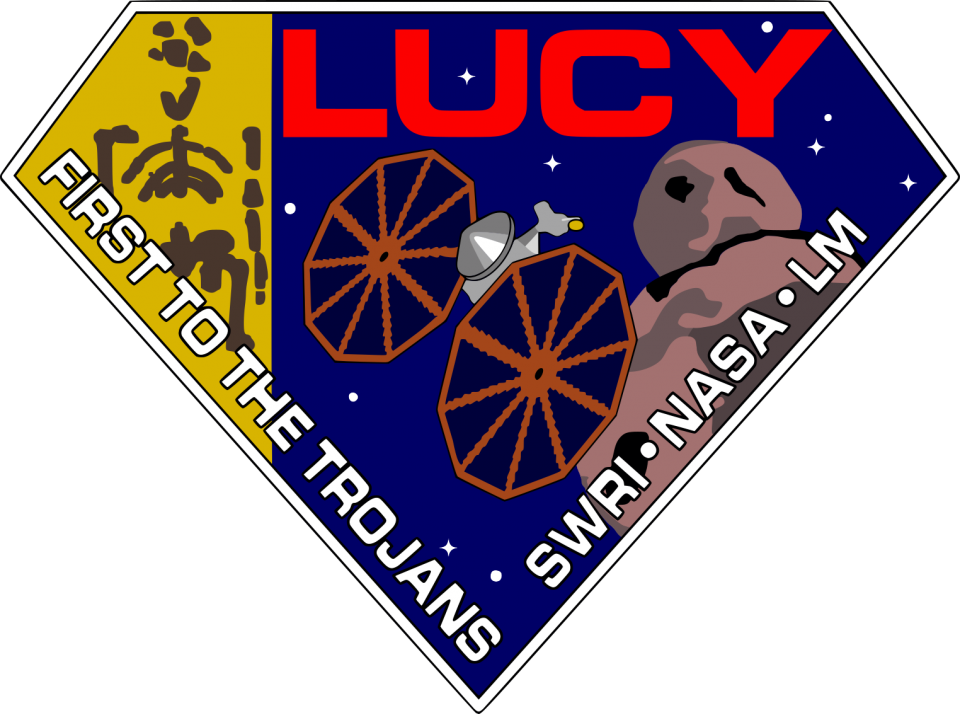NASA, ASU-led L’SPACE Program selected for IAF Excellence in 3G Diversity Award

NASA L'SPACE: Lucy Student Pipeline Accelerator and Competency Enabler. Image courtesy ASU
The International Astronautical Federation (IAF) has announced the 2023 recipients of the prestigious IAF Excellence in 3G Diversity Award, and the NASA Space Technology Mission Directorate (STMD)/Arizona State University-led L'SPACE Program — the NASA Proposal Writing and Evaluation Experience (NPWEE) Program was selected by the IAF Inclusion, Diversity and Equity Administrative Committee (IDEA) for its outstanding contributions to the fostering of "3G" (geography, generation, gender) diversity within the space sector.
Founded in 1951, the IAF is the world's leading space advocacy body to foster dialogue between scientists worldwide and support international cooperation in all space-related activities.
The NASA L'SPACE Program is a free, online, interactive experience open to undergraduate STEM students attending a U.S. college or university and early-career professionals interested in pursuing a career with NASA or other space organizations within the exploration ecosystem. L’SPACE is the student collaboration program for the Lucy mission, which is managed by the Southwest Research Institute.
L'SPACE consists of two 12-week online programs. NPWEE, the L’SPACE Program that has been selected by the IAF for the 3G Diversity Award, is led by NASA Marshall Space Flight Center’s Chief Technologist John Dankanich and his team, and is co-facilitated by the ASU L’SPACE staff — Sheri Klug Boonstra, L’SPACE principal investigator, and Dann Garcia, L’SPACE deputy principal investigator.
NPWEE helps undergraduate through early career STEM professionals provide ideas to help NASA innovate and propose new concepts that can be used in exploration. The second program is the Mission Concept Academy, which provides undergraduate students the opportunity to create mission designs based on requirements that adhere to NASA near-term needs within their planned mission architecture.
The Lucy mission will be the first space mission to explore a population of small bodies known as the Trojans. Image courtesy NASA/SwRI
"The L'SPACE Program is designed for the needs of the STEM space exploration workforce," said Klug Boonstra, a School of Earth and Space Exploration instructor. "Our goal is to provide NASA-focused STEM mentoring and technical science and engineering training that is accessible and equitable at a national scale."
More than 4,500 students have participated in the L’SPACE NPWEE Program, representing all 50 U.S. states, Puerto Rico and Guam. Since the program's inception, over 300,000 hours of mentoring and STEM workforce development have been accrued through instructor presentations, mentoring and students' projects.
IAF recognizes the outstanding and innovative efforts of the NASA L’SPACE Program. The recipients of this highly competitive award were selected for their exemplary accomplishments through NPWEE.
Each winning IAF Excellence Diversity Award category will receive a commemorative statue and a certificate presented to NASA and the ASU L’SPACE Program during the annual IAF Excellence in 3G Diversity Luncheon at the International Astronautical Congress (IAC) in Baku, Azerbaijan, in early October. On that occasion, Klug Boonstra will accept the award.
For information about the NASA L'SPACE Program and its accomplishments, visit https://www.lspace.asu.edu/.
More Science and technology
Largest genetic chimpanzee study unveils how they’ve adapted to multiple habitats and disease
Chimpanzees are humans' closest living relatives, sharing about 98% of our DNA. Because of this, scientists can learn more about…

Beyond the 'Dragon Arc': Unveiling a treasure trove of hidden stars
NASA's James Webb Space Telescope (JWST) has set a new milestone: capturing images of over 40 individual stars in a galaxy so…

ASU selected as home and partner for CHIPS and Science Act-funded national facility for semiconductor advanced packaging
Following a week where a spirited effort by the Sun Devil football team captured the nation’s attention in the Peach Bowl, it is…
